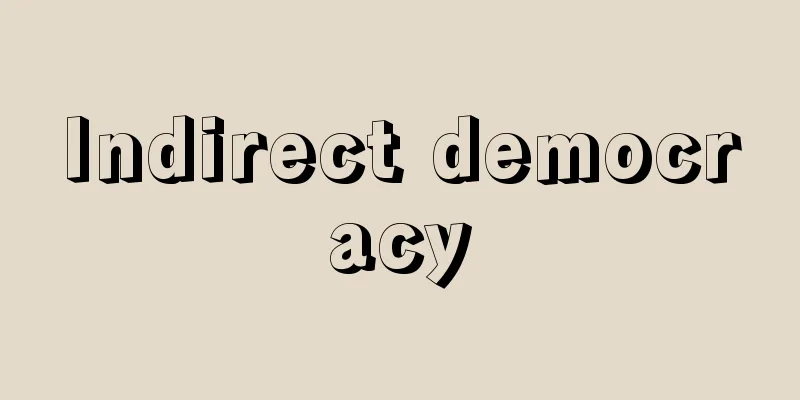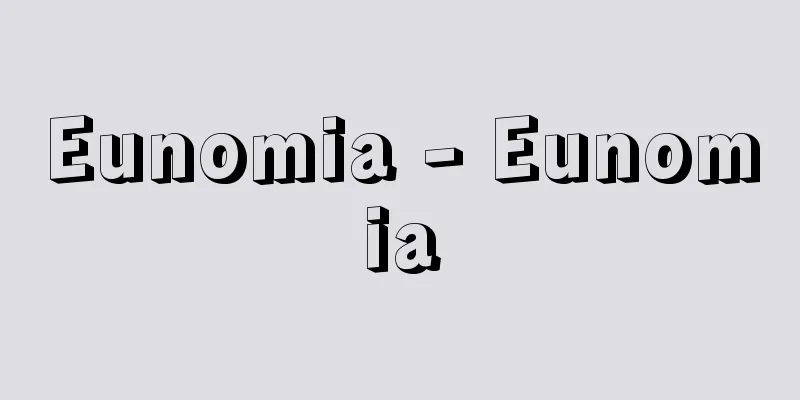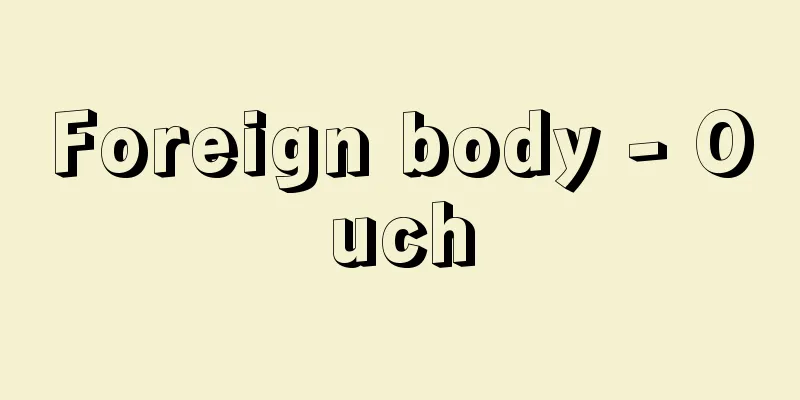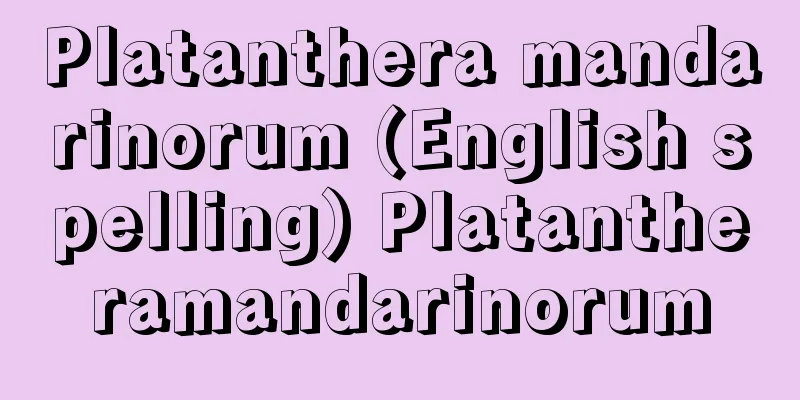Indirect democracy

|
A political system or method of government administration in which the people elect representatives and entrust them with governance. It is the opposite of direct democracy, in which all members participate in discussions and decisions, and monarchy or dictatorship, in which a single ruler governs. It is also called representative democracy or representative system, and is typified by the parliamentary system of government in modern countries. The postwar Japanese Constitution also takes the position of representative democracy, rejecting the imperial system of government that existed before the war. Direct democracy was possible in small political communities such as the ancient Greek city-states, but when modern states emerged with territorial expansion and populations exceeding millions or tens of millions, direct democracy was no longer possible as a method of political rule. When modern states such as the United Kingdom emerged, parliamentary rule was adopted, and as a result, indirect democracy has come to be considered equal to parliamentary rule today. However, even in China and North Korea, which adopt democratic centralism as a form of political management that is qualitatively different from parliamentary rule, the National People's Congress and the Supreme People's Assembly, the highest organs of state power, can be called representative democracies in form, so it can be said that representative democracy and indirect democracy are widely adopted throughout modern political systems. By the way, parliamentary government was a more advanced form of government than arbitrary and arbitrary monarchical rule, but since limited suffrage was adopted in most countries until the end of the 19th century, its minority character was criticized. Rousseau's observation that the English were free only when they voted, but were slaves at other times, was a sharp attack on the defects of early parliaments. Thus, efforts were made to reflect the will of the entire people as much as possible, thereby guaranteeing the substance of indirect democracy, and universal suffrage was realized in most countries by the end of World War II. However, in today's huge and complex nations and societies, it is difficult to absorb all the diverse wills and interests of the people into governing bodies or to reflect them through four or five political parties. Therefore, in order to reflect the will of the people at any time at the national and local political levels, efforts are being made to compensate for the shortcomings of indirect democracy by using direct democracy in conjunction with it. However, the issue of proper political management under indirect democracy will basically be ensured by raising the political awareness of the people and revitalizing citizen and residents' movements to resolve issues related to everyday life. [Hiroshi Tanaka] [Reference item] |Source: Shogakukan Encyclopedia Nipponica About Encyclopedia Nipponica Information | Legend |
|
国民が代表者を選出し、政治を委託するという方法で行われる政治制度、または政治運営の方式。全成員が参加して討議・決定する直接民主制や一人の支配者が政治を行う君主制・独裁に対する語。代表民主制、代議制ともいい、現代の各国における議会制統治が典型例。戦後の日本国憲法も代表民主制の立場をとり、戦前のような天皇制統治を否定している。 古代ギリシアの都市国家のように小規模な政治共同体においては直接民主制は実施可能であったが、領土の規模が著しく拡大し、そこに住む人口も数百万、数千万人を超える近代国家が登場すると、もはや政治支配の方式としては直接民主制は不可能となる。そこでイギリスをはじめとする近代国家が登場すると議会制統治が採用され、そのため今日では間接民主制イコール議会制統治とまで考えられるようになった。しかし、議会制統治とは質的に異なる政治運営としての民主集中制をとる中国や北朝鮮においても、国権の最高機関である全国人民代表大会や最高人民会議は、形式的には代表民主制とよべないことはないから、この代表民主制、間接民主制は現代政治制度の至る所で広範に採用されているといえよう。 ところで、議会政治は、専断的・恣意(しい)的な君主支配よりも進んだ政治形態ではあったが、19世紀末ころまではほとんどの国において制限選挙制がとられていたから、その少数支配的性格が批判された。ルソーの、イギリス人たちは選挙のときだけ自由であるがそれ以外のときは奴隷状態にあるという指摘は、初期議会の欠陥を鋭くついたものといえよう。こうして全国民の意志を可能な限り反映させ、それによって間接民主制の実質を保障しようという努力が続けられ、第二次世界大戦後までにほとんどの国々で普通選挙制が実現された。しかし、今日のように巨大で複雑な国家・社会においては、多種多様な国民の意志や利害をすべて統治機関に吸収し、あるいは四つか五つの政党を通じて反映させることは困難である。そこで国政レベルや地方政治のレベルにおいて国民の意志を随時反映できるように、直接民主制を併用し間接民主制の不備を補うくふうがなされている。しかし、間接民主制の下における正しい政治運用の問題は、基本的には国民の政治意識の高揚と、身近な日常生活と関係する事柄を解決するための市民運動や住民運動などの活性化によって保障されるであろう。 [田中 浩] [参照項目] |出典 小学館 日本大百科全書(ニッポニカ)日本大百科全書(ニッポニカ)について 情報 | 凡例 |
Recommend
Decimal point
〘 noun 〙 A comma is a point placed between the one...
Uneme Takeyoshi - Uneme no Chikura
…This stone monument was made in 689 (the 3rd yea...
Kanchoro
...Those from the Edo period were made of metals ...
Poorhouse - Kyuhinin
〘 noun 〙 A public or private facility established ...
Koriyama Basin
A basin in the middle of the Abukuma River in cen...
Careful work - Careful work
〘Noun〙 (The sound of "kakugon" written w...
Yellow dyeing
The name of a dye. It is a yellowish brown color ...
supermind
According to him, the Absolute, Brahman, is the s...
Characidae; characins
A family of fish in the order Characidae. Most are...
Referred pain - referred pain
Also known as referred pain or projected pain, thi...
King's Court
...area: 4,351 km2, population: 3,266 (1976). The...
Deer cabbage (English spelling)
...It grows in the marshes and ponds of the alpin...
Herzog, Roman
Born: April 5, 1934, Landshut [Died] 10 January 20...
Exclamation mark
… Punctuation is the equivalent of punctuation in...
Internal combustion engine
A type of heat engine that burns fuel in a gas (m...



![Loquat [town] - Loquat](/upload/images/67cca7ac5a0ae.webp)





